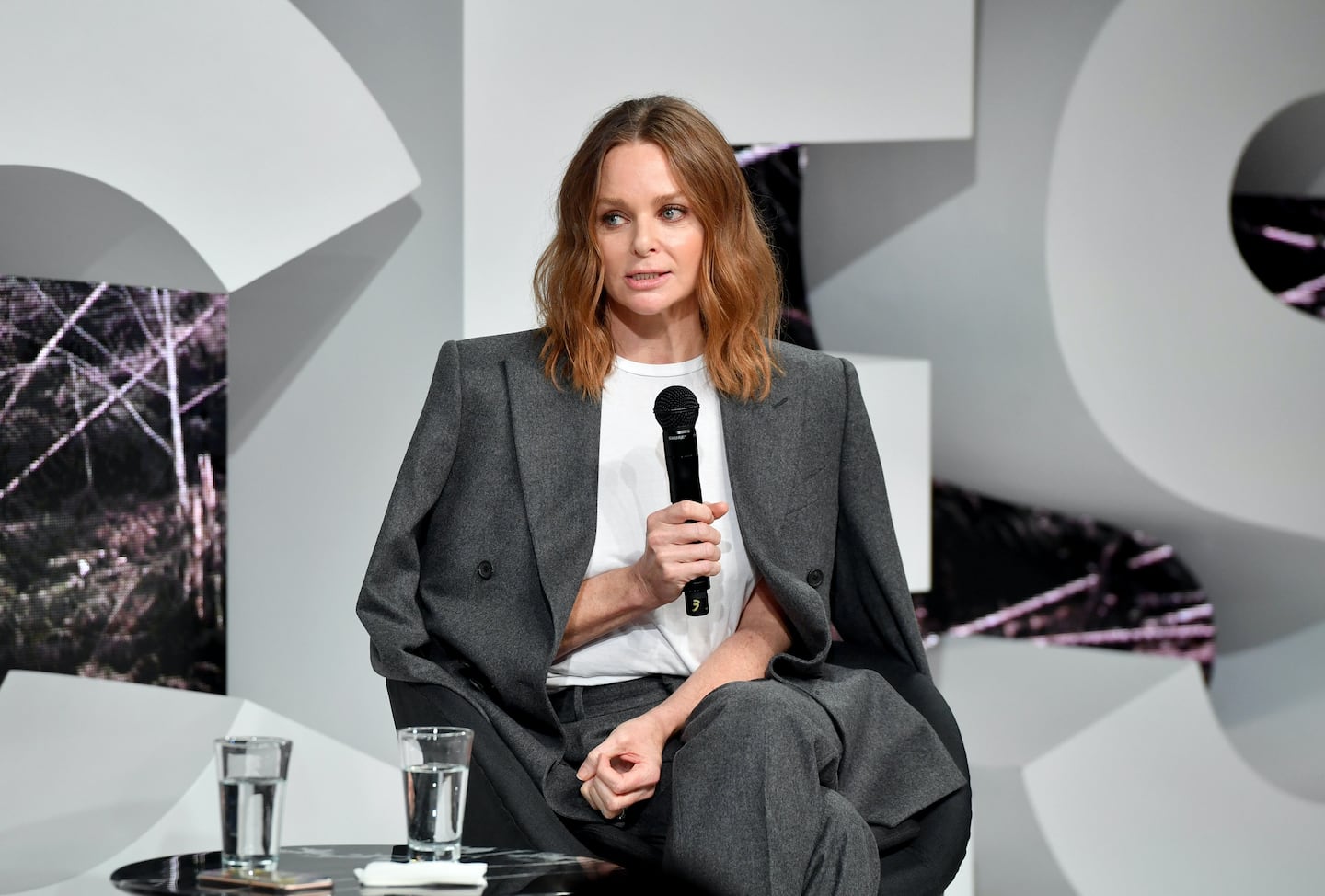
The Business of Fashion
Agenda-setting intelligence, analysis and advice for the global fashion community.

Agenda-setting intelligence, analysis and advice for the global fashion community.

OXFORDSHIRE, United Kingdom — A lifelong vegetarian who founded her cruelty-free namesake brand in 2001, Stella McCartney has been in the game of ethical fashion long before it was trending.
Now, she is using her platform as a designer and businesswoman to implore others to follow in her footsteps. At VOICES 2018 she revealed the launch of a UN charter for climate action within the fashion industry, which delineates 16 commitments for lessening fashion’s impact on the environment.
McCartney also revealed her latest charitable initiative “Stella McCartney Cares Green,” which aims to empower students, professionals and businesses to embrace sustainable and ethical practices. It will work towards influencing change among policymakers too.
This call to action was underscored by an appeal to the collective responsibility of those in fashion. “It’s really about bringing everyone together as an industry,” she said. “Actually taking responsibility, putting our money where our mouth is and making an amazing change together.”
ADVERTISEMENT
To subscribe to the BoF Podcast please follow this link.
Subscribe to BoF Professional for unlimited access to BoF articles, plus exclusive benefits for members.
To contact The Business of Fashion with comments, questions, or speaker ideas please e-mail podcast@businessoffashion.com.
The fashion industry continues to advance voluntary and unlikely solutions to its plastic problem. Only higher prices will flip the script, writes Kenneth P. Pucker.
The outerwear company is set to start selling wetsuits made in part by harvesting materials from old ones.
Companies like Hermès, Kering and LVMH say they have spent millions to ensure they are sourcing crocodile and snakeskin leathers responsibly. But critics say incidents like the recent smuggling conviction of designer Nancy Gonzalez show loopholes persist despite tightening controls.
Europe’s Parliament has signed off rules that will make brands more accountable for what happens in their supply chains, ban products made with forced labour and set new environmental standards for the design and disposal of products.